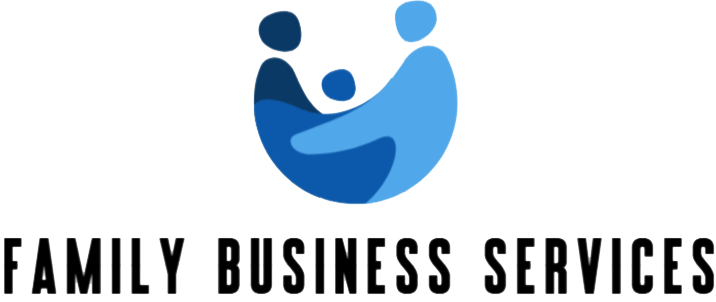In recent years, the shift toward remote work has made home office expenses an important topic for both employers and employees in Canada. With many people working from home, understanding how these expenses can be managed and reimbursed is crucial for employers who want to support their team while staying compliant with tax regulations.
This guide will walk you through everything Canadian employers need to know about home office expenses, from what qualifies as a deductible expense to how to handle reimbursements.
What Are Home Office Expenses?
Home office expenses are costs that employees incur while working from their home offices. These expenses can include a range of items, from office supplies and technology to utilities and rent.
For Canadian employers, it’s important to understand what qualifies as a home office expense and how to reimburse employees for these costs.
Employees who work from home may incur various expenses that they wouldn’t have faced in a traditional office setting. For instance, they might need to purchase office furniture, high-speed internet, or even a printer.
Employers can offer support by reimbursing employees for some of these expenses or providing stipends to help cover them.
What Expenses Can Be Covered?
In Canada, home office expenses can generally fall into two categories: office supplies and equipment, and work-related costs associated with the home office.
Office Supplies and Equipment
This includes items such as computers, printers, paper, pens, and other essential office tools. While some of these might be reimbursed directly by the employer, others may require the employee to purchase them upfront and submit receipts for reimbursement.
Work-Related Costs
These expenses can include:
- Internet and Phone Bills: If employees are required to use their home internet or phone lines for work, employers can reimburse a portion of the costs.
- Electricity and Heating: A small percentage of utilities like electricity and heating can be claimed as a home office expense if the employee uses part of their home for work. This is generally prorated based on the size of the workspace.
- Rent or Mortgage Interest: If an employee works from a dedicated home office, a portion of their rent or mortgage interest might be eligible for reimbursement, based on the proportion of the home used for work.
- Home Office Furniture: Items such as desks, chairs, and filing cabinets are also considered work-related expenses if they are used solely for business purposes.
What Expenses Can’t Be Covered?
While many home office expenses are eligible for reimbursement, there are certain costs that employers are not required to cover. These can include:
- Personal Expenses: Any costs related to personal items or activities that are not directly related to the work being performed are not eligible for reimbursement.
- Renovations: Significant home renovations to create a home office, such as building an addition or remodeling a room, are not typically covered.
- Daily Living Costs: Basic household expenses like groceries, personal phone bills, or non-work-related entertainment cannot be reimbursed.
How to Reimburse Employees for Home Office Expenses
There are a few different ways employers can handle reimbursements for home office expenses.
First is direct reimbursement. Employers can choose to directly reimburse employees for eligible home office expenses. This could be for things like office supplies or technology purchases.
To do this, employers will need to have a clear policy on what qualifies for reimbursement and ask employees to provide receipts or documentation for the expenses they are claiming. This helps ensure transparency and avoids disputes.
Second is the monthly stipend. Some employers prefer to give their employees a fixed monthly stipend to help cover home office expenses. This amount can be calculated based on the average costs of utilities, internet, and other shared expenses.
While this method offers simplicity, it’s important to ensure that the stipend aligns with what employees are actually spending on their home office setup.
The last one is through tax deductions for employees.
Employees who work from home may be eligible for tax deductions related to their home office. However, employers are not responsible for these deductions, but they can inform employees about potential tax benefits. Employees should keep detailed records of their home office expenses and consult with a tax professional to determine what they can claim.
What Should Employers Do to Stay Compliant?
For Canadian employers, staying compliant with tax laws is essential. The Canada Revenue Agency (CRA) has specific rules and guidelines about home office expenses, and employers should follow them closely to avoid any issues during tax season.
Employers should:
- Establish Clear Policies: Develop clear policies outlining what home office expenses can be reimbursed and how employees can submit claims. This ensures everyone is on the same page and avoids misunderstandings.
- Maintain Proper Documentation: Keep a record of all expense claims and receipts submitted by employees. This will be important for tax purposes and to ensure compliance.
- Consult with a Tax Professional: If you’re unsure about what qualifies as a deductible expense or need help creating a policy, it’s a good idea to consult with a tax professional. They can guide you on what the CRA allows and help you avoid potential tax issues.
Conclusion
Supporting employees working from home by covering some of their home office expenses can go a long way in maintaining a productive and positive work environment. While it can be tricky to determine which expenses are eligible for reimbursement, having a clear policy and understanding the CRA’s guidelines will make the process smoother.
Employers who handle these expenses thoughtfully and transparently can help ensure their employees stay comfortable and motivated, ultimately benefiting the entire organization.
If you’re a Canadian employer navigating home office expenses, remember that this support not only helps your team but also ensures that your business complies with tax regulations.



